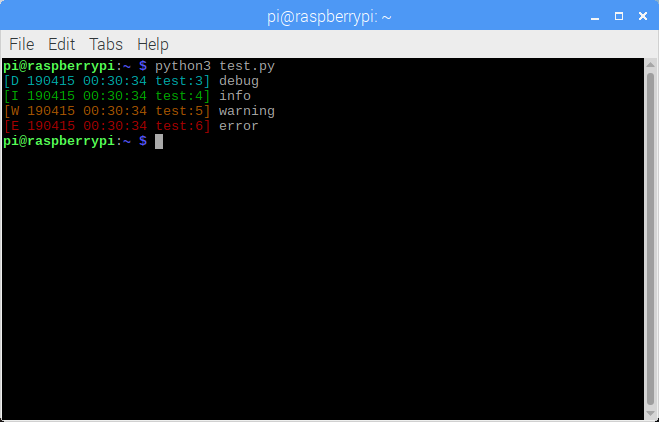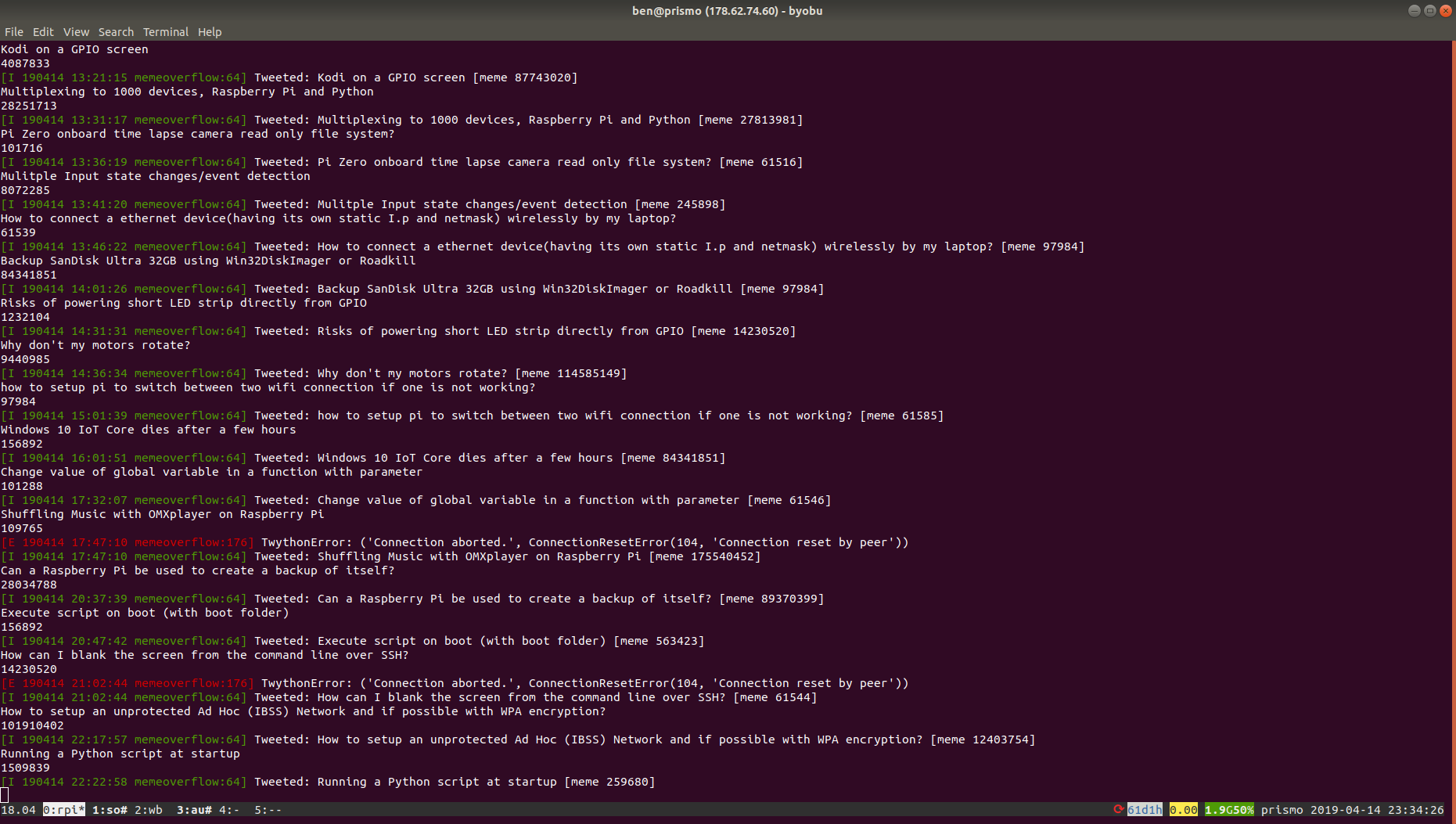I’m not sure whether logzero took its name to fit in with the series of “zero boilerplate” libraries like pygame-zero, GPIO Zero and guizero, but it’s certainly in that category. It’s a Python library that makes logging straightforward. It makes logging as easy as a print statement, which is a big win for education, as it saves from explaining another concept.
You can just use its basic logging to stdout functionality the same way you might use print for information and debugging purposes, and it has a smooth learning curve towards more advanced logging, like logging to a file.
To start, install logzero with pip:
sudo pip3 install logzero
Now in a Python file, import logger and try one or all of these logging examples:
from logzero import logger
logger.debug("hello")
logger.info("info")
logger.warning("warning")
logger.error("error")
The output is automatically coloured:

So now instead of using print to figure out what’s going on, use logger instead, with the relevant log level. If you only read this far and make that one change in the way you write code, that’s good enough for me. If you want to go further, read on!
You can also log to a file:
from logzero import logger, logfile
logfile('/home/pi/test.log')
Now your log entries will be logged into the file test.log. You can specify some more options too:
logfile('/home/pi/test.log', maxBytes=1e6, backupCount=3)
Now when the logfile reaches 1MB (1×106 bytes), it will rotate entries through test.log.1, test.log.2, and so on. You might want to log to /var/log like a pro. Just create a directory and make your user the owner so they can write to it:
$ sudo mkdir /var/log/test
$ sudo chown pi /var/log/test
Then in your code, set the logfile path:
logfile('/var/log/test/test.log', maxBytes=1e6, backupCount=3)
When it comes to catching exceptions in your logfile – you can either use logging.exception:
try:
c = a / b
except Exception as e:
logger.exception(e)
This will produce the following (in the case that b is zero):
[E 190422 23:41:59 test:9] division by zero
Traceback (most recent call last):
File "test.py", line 7, in
c = a / b
ZeroDivisionError: division by zero
You get the log entry followed by the full traceback.
Alternatively, you could use logging.error and hide the traceback:
try:
c = a / b
except Exception as e:
logger.error('{}: {})'.format(e.__class__.__name__, e))
Now this will produce the more succinct:
[E 190423 00:04:16 test:9] ZeroDivisionError: division by zero

There are plenty more options which you can read in the docs at logzero.readthedocs.io